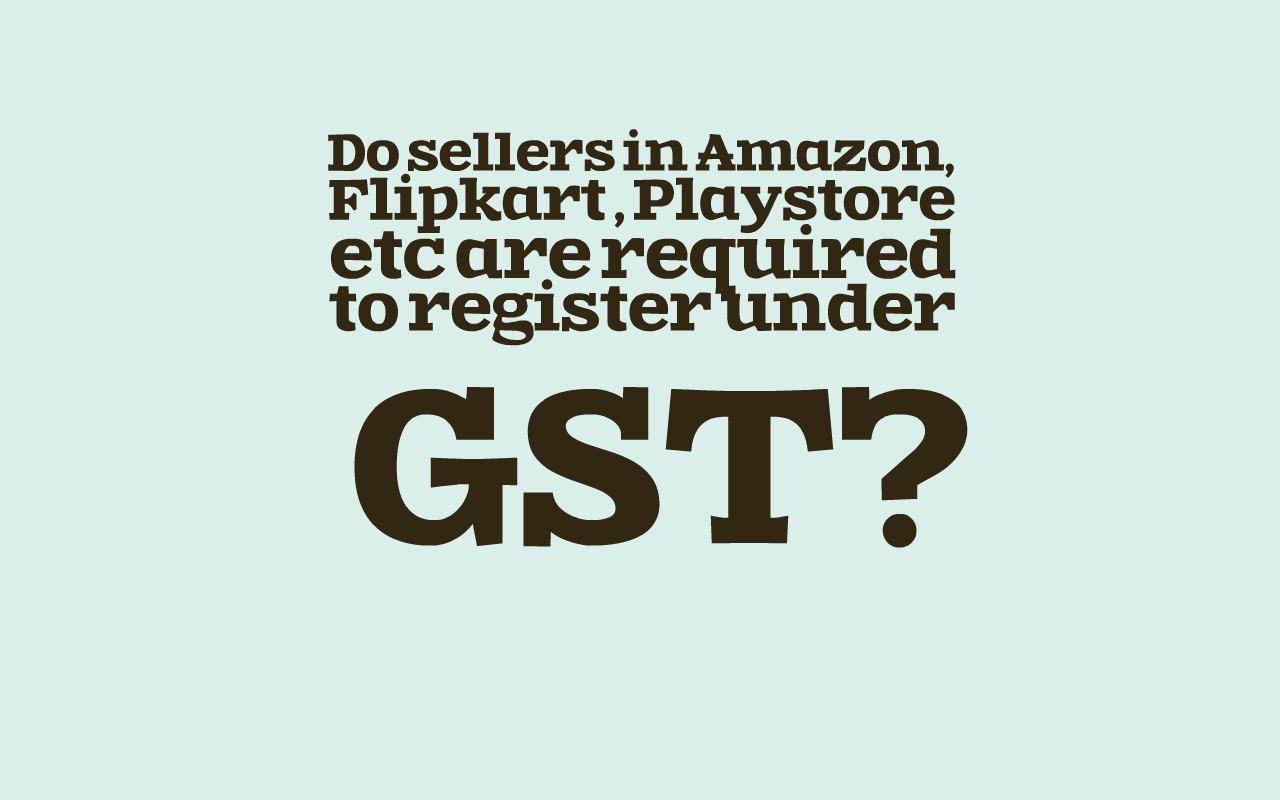E-commerce has emerged as an emerging trend of business in India, there are thousands of suppliers under e-commerce operators, we will discuss about the applicability of GST on the suppliers selling goods or services through an e-commerce platform.
An e-commerce platform/operator is an entity which owns, operates or manages digital or electronic facility or platform for E commerce like Amazon, Flipkart, Google Playstore etc.
Suppliers on E commerce platform is an entity or individual which supplies goods or services on/through an E commerce platform.
Applicability of GST on Suppliers in an Ecommerce Platform
It may be noted that as per the notification issued by the government on 26th June 2017, the provisions of TCS has been put on hold and it will come into force from a date which will be communicated later.
Requirement for Registration under GST
All suppliers on E commerce platforms are mandatorily required to register under GST including even those E commerce suppliers whose aggregate turnover does not exceed the threshold limit for registration.
Further, they are not eligible to opt for composition scheme.
Burden of collection of tax to be on E-commerce operator
Every e-commerce operator should collect 1% under CGST Act and 1% under SGST Act for an intra-state transaction and if an interstate transaction is being done, he will collect 2% of tax under IGST Act on the net values of taxable supplies.
It means that any dealers/traders who are selling goods online through e commerce platforms like Flipkart, Amazon, Google Playstore etc. would get their payment after deduction of 2% tax by e commerce operators.
At what time/intervals should the e-commerce operator make such deductions?
The timings for such collection/deduction are earlier of the two events:
(i) the time of credit of any amount to the account of the actual supplier of goods and / or services;
(ii) the time of payment of any amount in cash or by any other mode to such supplier.
How can actual suppliers claim credit of this TCS?
Such TCS which is deposited by the operator into government account will be reflected in the cash ledger of the actual registered supplier (on whose account such collection has been made) based on the statement filed by the operator. The same can be used at the time of discharge of tax liability in respect of the supplies by the actual supplier.
Now the big question: Should a supplier in an e-commerce platform register under GST
The short answer is yes, but not immediately, since the above provisions are deferred for the time being and would come into force at a later stage, a seller supplying goods or services through electronic commerce operators would not be required to obtain registration immediately & only once the provisions come into force.
